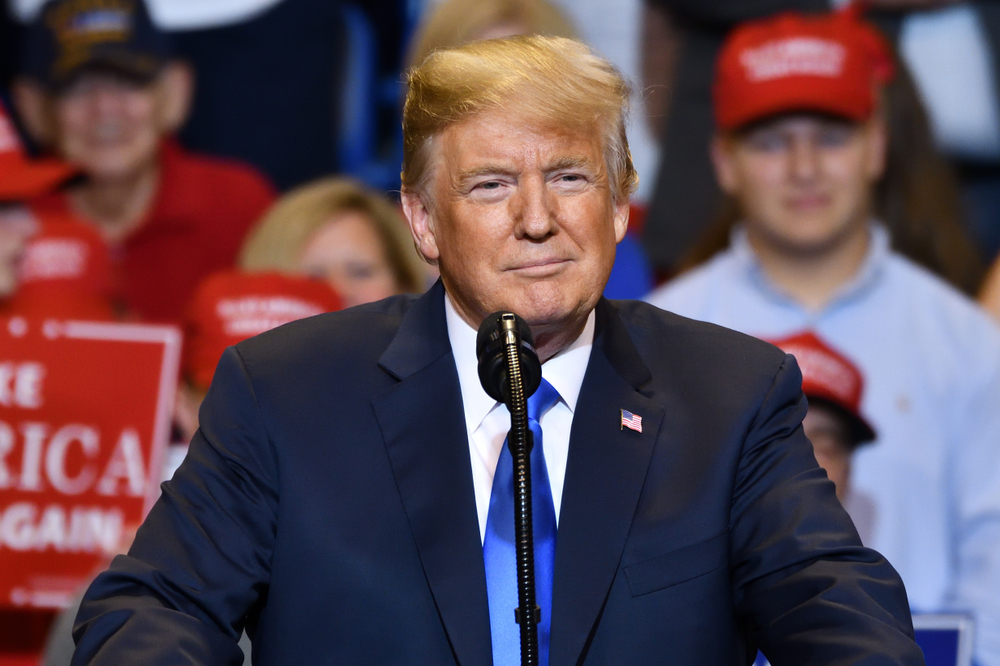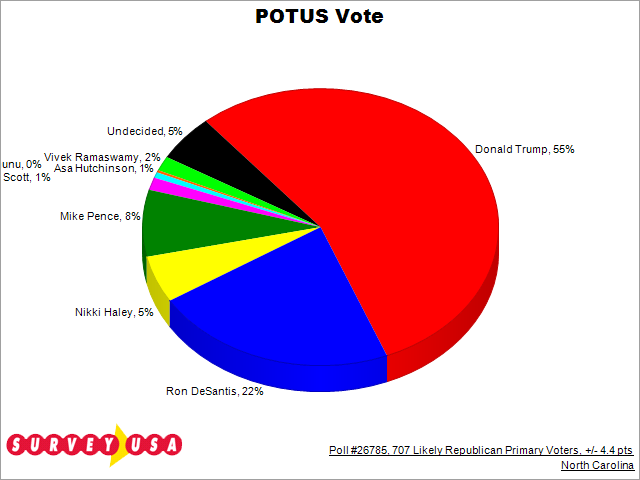Politics
Brand New North Carolina Poll Shows Trump Dominating Entire GOP Field

As the 2024 state primaries approach, a new poll conducted by the John Locke Foundation reveals that former President Donald Trump is the clear front-runner among likely GOP primary voters in North Carolina.
The poll, which surveyed over 700 participants, found that 55% of those polled would vote for Trump if the primary was held today.
Florida Governor Ron DeSantis came in second with 22% of the vote, followed by former Vice President Mike Pence with 8%, and former South Carolina Governor Nikki Haley with 5%.
Interestingly, the poll shows that Trump’s support is highest among young primary voters aged 18-34 and voters above 65, capturing over 60% of the vote in those age demographics. In contrast, less than half of voters aged 35-64 supported Trump.

While the poll shows a clear lead for Trump and DeSantis, voters remain largely undecided in other key state races. The primary is set for March, leaving plenty of time for candidates to make their case to North Carolinians.
North Carolina has a history of being a key battleground state in recent presidential elections. In the 2016 United States Presidential Election, Trump won the state with 49.8% of the popular vote, defeating Democratic nominee Hillary Clinton, who received 46.2% of the vote.
In 2020, North Carolina was one of the key battleground states. The race was very close, with Trump winning by a margin of only 1.3%. Trump won the state with 49.9% of the vote, while Joe Biden received 48.6% of the vote.
In addition to the close races in 2016 and 2020, the state has also seen close elections in other recent cycles. In the 2008 election, Barack Obama won North Carolina by a slim margin of 0.3%. In 2012, Mitt Romney won the state by a slightly larger margin of 2%.
The ever-changing voter demographics of North Carolina – which has a Democrat governor – could play a major role in the 2024 presidential election. The state’s population is growing rapidly, particularly in urban areas, and becoming increasingly diverse. This could potentially shift the balance of power in the state and make it more competitive.

